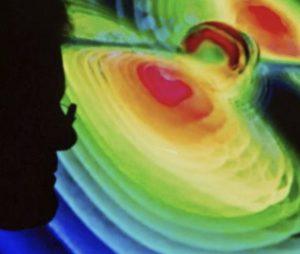Jennifer Ouellette in Ars Technica:
 The first direct detection of gravitational waves was announced on February 11, 2016, spawned headlines around the world, snagged the 2017 Nobel Prize in Physics, and officially launched a new era of so-called “multi-messenger” astronomy. But a team of physicists at the Niels Bohr Institute in Copenhagen, Denmark, is calling that detection into question based on its own independent data analysis conducted over the last two and a half years.
The first direct detection of gravitational waves was announced on February 11, 2016, spawned headlines around the world, snagged the 2017 Nobel Prize in Physics, and officially launched a new era of so-called “multi-messenger” astronomy. But a team of physicists at the Niels Bohr Institute in Copenhagen, Denmark, is calling that detection into question based on its own independent data analysis conducted over the last two and a half years.
As New Scientist reports, the group thinks that the original gravitational wave signal detected by the Laser Interferometer Gravitational-Wave Observatory (LIGO) was an “illusion.” The researchers allege that the collaboration mistook patterns in the noise for a signal. The magazine oddly touts this as an “exclusive,” but group spokesperson Andrew Jackson has been banging thisparticular drum for a while now, after first experiencing misgivings about LIGO’s analysis as presented during the February 11, 2016, press conference in Washington, DC. The group’s original paper was published in the Journal of Cosmology and Astroparticle Physics in August of that year, and there has been considerable back and forth within the physics community about Jackson’s claims since then.
More here.
